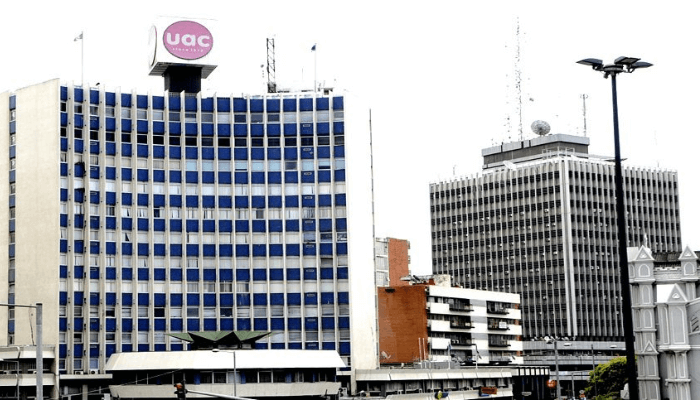UAC Nigeria Plc has deposited N19.2 billion as part of its share purchase agreement for the acquisition of CHI Limited. The transaction is the most significant corporate transaction in Nigeria's fast-growing consumer goods sector this year.
According to the group's third quarter 2025 financial statements, the amount represents a portion of the total purchase consideration for the acquisition. However, the full transaction value is unknown.
acquisition financing
To finance the transaction, UAC Nigeria disposed of all of its Eurobond investments during the reporting period. As at June 30, 2025, the group held Federal Government of Nigeria (FGN) Eurobonds, Ecobank Transnational Incorporated (ETI) Eurobonds and Ecobank Nigeria Eurobonds, totaling N5.58 billion. These were sold for N5.5 billion to generate liquidity for the CHI acquisition.
While the company recorded a net operating cash flow of N18.1 billion in the first nine months of 2025, it is not clear whether part of its N43.2 billion new borrowing was directed towards CHI deposits. Therefore, the transaction appears to have been financed through a combination of asset disposal, internal cash generation and debt.
Inside CHI Acquisitions
On July 29, 2025, UAC Nigeria announced that it had reached an agreement to acquire CHI Limited, the maker of popular beverage and dairy brands such as Hollandia and Chivita, from The Coca-Cola Company.
Also Read: UAC Stock Investors Are Already Drinking Chivita Juice – BusinessDay NG
Coca-Cola initially acquired a 40 percent stake in CHI in 2016 before completing the full acquisition in 2019. According to findings by BusinessDay, the American beverage giant spent about $694.5 million to acquire CHI, which was equivalent to between N160 billion and N170 billion at the time.
However, after only six years, Coca-Cola exited the Nigerian business, reaping $393 million on its investment. The divestment underscores the company's growing caution toward the volatile Nigerian market, where the naira is set to lose about 80 percent of its value between 2019 and 2025.
Coca-Cola's retreat highlights a broader trend of multinationals reassessing their exposure to Nigeria's tough operating environment. Since 2020, the environment has been characterized by currency instability, inflationary pressures and rising production costs. However, for UAC, the acquisition represents a new bet on local manufacturing and brand heritage.
UAC's Q3 2025 performance
UAC Nigeria recorded a net loss of N1.98 billion in the third quarter of 2025, its first quarterly loss in two years. This took its nine-month net profit to N5.38 billion, down 61 per cent from N13.7 billion in the same period in 2024.
Still, the company's performance reflects more than headline profitability. Operating profit increased by 9.1 per cent year-on-year to N13.4 billion, up from N12.3 billion in 9M 2024. However, the group suffered a sluggish third quarter, with revenue declining 1.5 per cent year-on-year to N49.2 billion, compared to N49.9 billion in the third quarter of 2024.
When adjusted for the one-time foreign exchange gain of N10.2 billion recorded in 9M 2024, UAC's normalized net income showed a strong rebound, increasing by 66 per cent year-on-year. This underlying improvement was also visible in cash flow performance: net operating cash flow increased by 69 per cent to N21.6 billion, up from N12.8 billion a year earlier.
a strategic pivot
For UAC, the CHI acquisition signals a strategic pivot towards stronger brand consolidation, as it enters the dairy and ready-to-drink markets. The company's decision to inject substantial capital, even amidst the shaky balance sheet left by Coca Cola, suggests confidence in their understanding of Nigeria's consumption patterns.
Although details of the final purchase price are unknown, the integration of CHI could significantly reshape UAC's income profile in the coming years, creating one of the largest local consumer goods portfolios in West Africa.











